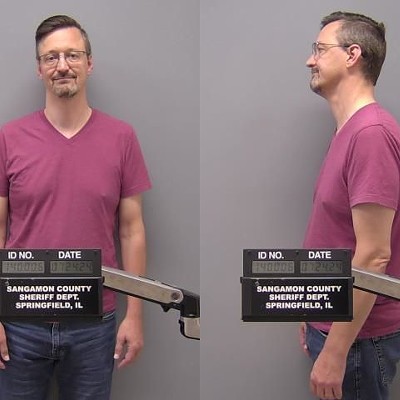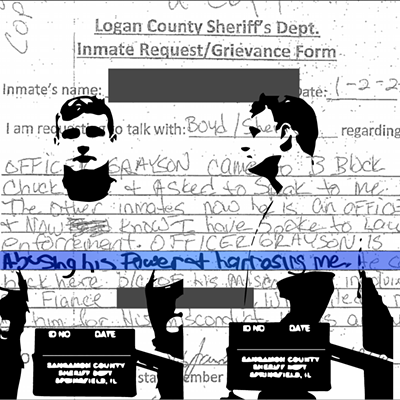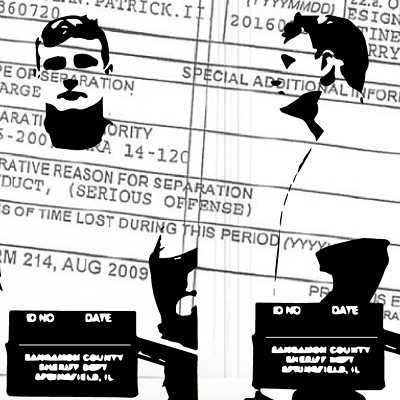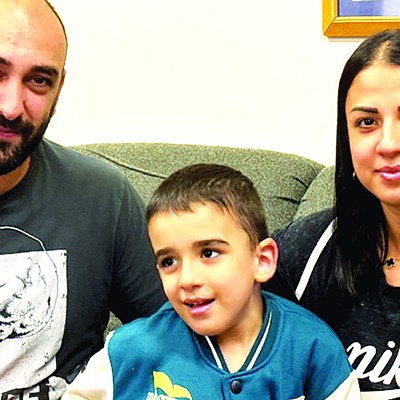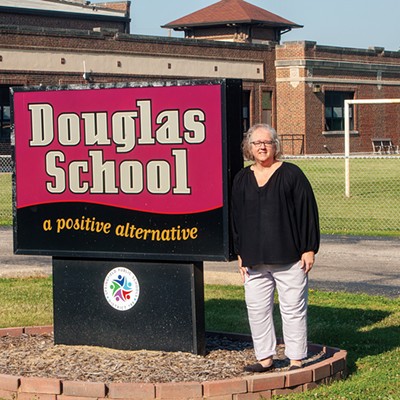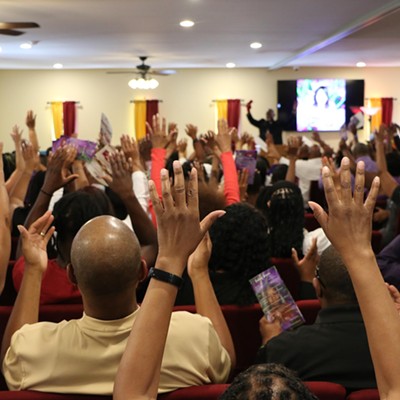People serving life prison sentences deserve to have hope that they may someday be free.
That is the contention of a group of Illinois lawmakers who want to make inmates sentenced to lengthy prison terms eligible for parole.
"We just want to reestablish hope within the prison system," State Rep. Rita Mayfield, D-Chicago, said. The measure, House Bill 2399, could come up for a vote as early as this month.
Katrina Burlet, campaign strategy coordinator and operations manager with Parole Illinois, said her group is in negotiations with key lawmakers to have the measure included in a package of criminal justice reform legislation that may be voted on during veto session. Parole Illinois is a Chicago-based nonprofit that works toward a more just and humane legal system.
Unlike other criminal justice reform endeavors recently passed by the General Assembly, this legislation would almost exclusively benefit those convicted of violent offenses.
"I believe in an opportunity, not so much to get out, but to at least have their stories told, to give them an opportunity to basically connect with a qualified panel of individuals about why they deserve a second chance," Mayfield said.
The measure would make all inmates serving lengthy prison sentences eligible for a parole hearing after 20 years.
Illinois abolished its parole system in the 1970s. While inmates sentenced before 1978 can still be considered for parole, they account for fewer than 50 of the state's 38,000 prisoners.
The proposal doesn't sit well with some family members of murder victims.
"Illinois should not bring back parole," said Marilyn Wagner of Jacksonville. "It's not fair to the families of those killed."
Her brother, Larry Boyer, was killed in his Springfield apartment at 613 1/2 S. Ninth St. on the morning of June 24, 2010. An autopsy indicated Boyer had been beaten to death with a two-by-four.
"I think my brother must have known the person who did this. If someone knocked on his door and asked for help, he would help them. That was just the kind of person he was," Wagner said.
Her brother worked for the Norfolk Southern Railroad for 40 years, was active with St. Luke's Episcopal Church in Springfield and enjoyed playing golf and discussing politics.
Prie Patterson, 49, pleaded guilty to first-degree murder in his death and was sentenced to 31 years in prison.
"It was important to us that he serve at least 31 years because that would mean he would not get out of prison before he was 70," Wagner said. "But if they bring back parole, he could get out much sooner than that. He's been in and out of prison since he was 16. That should tell you that people don't get better while they are in prison."
And there is the rub. Are people sent to prison for punishment or rehabilitation?
Kathryne Young, a parole expert who is an assistant professor of sociology at the University of Massachusetts-Amherst, said while more needs to be done to prepare prisoners for reentry into society, some individuals do get better during their time behind bars.
For this reason, it's important to have an objective group of professionals screen prisoners for potential release, she said.
But parole hearings often serve another purpose: cathartic release for victims and families.
"They are not actually getting any free therapeutic or psychological treatment from the state," she said. "The only way that many people have to heal is to come to these hearings. So, I don't think it's a downside of parole. ... Parole hearings can become somewhat of a safety valve for emotions, anger and sadness that don't have anywhere else to go."
If parole is brought back to Illinois, Wagner said she will testify against the early release of her brother's killer.
"I will go if I'm still alive. But I'm getting up there in years and so is my sister in Missouri," she said. "Once we are gone, who will go? That's an awful burden to leave for your kids to do."
In the meantime, if the measure comes up for debate within the General Assembly, she plans to lobby against it.
Jennifer Bishop-Jenkins, a victims' rights advocate whose sister and brother in-law were murdered in Winnetka in 1990, said every time there is a parole hearing families relive the trauma.
The Northfield resident said she is not necessarily opposed to reinstituting parole but questions whether the state has a mechanism to notify victims and their families of parole hearings, which she contends would be required by the Illinois Constitution.
"It would take a lot of research to find the contact information for all of those victims and family members. That information hasn't been collected over the years because no one knew there might be a need for it," she said.
The legislation, as it is currently worded, would allow for the first parole hearing after 20 years of incarceration for any crime. If parole is denied, hearings would be held every two years, Burlet of Parole Illinois, said.
Rep. Mayfield, a co-sponsor of the bill, said she anticipates some provisions of the legislation will be revised.
"I've had a lot of conversations on this, and we can't seem to get on the same page. There are those individuals who want to just open the door and say, any and everybody that's incarcerated deserves an option for parole. I want to take out sex offenders and anybody who has committed a crime against a police officer. ... These two categories we may need to treat just a little bit differently. And multiple murderers. You know, obviously we don't want to let out someone like John Wayne Gacy."
Mayfield added she would like to see parole hearings every 10 years, rather than every two, after an inmate is rejected by the board.
"We want to minimize the trauma for the victims' families," she said.
But contrary to some public perceptions, there are prisoners serving long sentences who are ready to be released early, said Gary Davis of Lincoln, who taught religion at Lincoln Land Community College and now is chairman of the Logan County Democratic Party.
About five years ago, Davis said his church, First Presbyterian in Lincoln, received a letter from a woman serving time at nearby Logan Correctional Center. She requested help paying tuition for a college correspondence course.
The woman, Paula Aiardo, was convicted of first-degree murder in DuPage County and began serving a 35-year sentence in 1999. A disabled woman she was caring for was robbed and killed by her boyfriend, Davis said. Aiardo was convicted as an accessory.
"I went out to the prison and I talked to her," he said. "I was impressed. She had the talent of the top 10% or 20% of students I've taught over the last 40 years. Why shouldn't she have a chance to go to college? So, I paid the tuition myself for the past five years. She takes the classes and I pay the tuition."
The church has since created a fund to help.
"We want her to be released and become a productive citizen – not a burden to the state as she is now," he said. Davis said she acknowledges her role in the crime, has been a model prisoner and has worked hard to improve herself.
Right now, she has at least 10 years left to serve. It's not a life sentence, but it is close. "She would be an excellent candidate for parole if Illinois ever brings it back. And I believe it should," he said.
Scott Reeder, a staff writer for Illinois Times, can be reached at [email protected].




